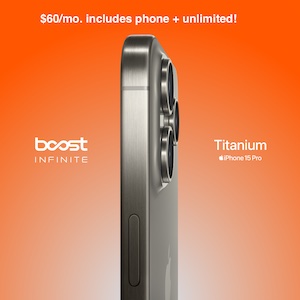Intel Busily Building Products People Don’t Want – Apple Escapes The PC
Quartz’s Christopher Mims observes that the only way to describe Intel’s overall revenue trend is dismal, the dominant chipmaker beginning to resemble other technology giants like BlackBerry (formerly Research In Motion) for which stagnating revenue has been a warning sign that the company’s prospects were about to go off a cliff.
Noting that sales of Intel’s bread and butter mainstay – PCs – in Q1 2013 have been battered by their most precipitous drop in the past 19 years (down 13.8%), Mims contends that Intel has two alternatives: either acknowledge that the world is shifting toward tablets, smartphones, and other mobile devices as outright PC replacements, or stay in denial and continue with business as usual. And so far Intel has mostly opted for business as usual.
Noting that consumers just don’t seem to want devices of the sort traditionally powered by Intel silicon, Mims notes that Intel has, for instance tried and failed, in partnership with Microsoft, to sell consumers on “ultrabooks,” – ultrathin, high-priced, notebook computers that mimic Apple’s paradigm-setting and category-leading Macbook Air.
He notes that what’s particularly depressing about being an Intel watcher is that unlike Microsoft, Intel has no shortage of innovation and drive, but the company’s leaders have failed to recognize that the PC landscape has fundamentally and permanently shifted.
Escaping PCs
Asymco blogger and market analyst Horace Dediu observes that the Windows PC market is contracting, with market data consistently showing unit shipments declining for some time, with the latest quarter having perhaps the steepest decline for two decades down 13.9 percent.
However, against this bleak backdrop, Dediu notes that Apple’s gross margins for the Mac remain healthy at a robust 26%, with an operating margin of 18.9% after overhead deductions, meaning that Applle’s the operating profits from its PC operations are greater than those of the top 5 non-Mac PC vendors combined.
Dediu calculates that assuming further that other PC vendors have the same profitability ratio as the top 5 combined yields a figure of 45% profit capture of PC market for Apple – not as good as its performance in the smartphone market, where Apple has about 72% of profits, but not bad.
He notes that the catastrophe for non-Apple PC vendors is that the sales volumes which had compensated for their traaditionally low margins are disappearing, obsercing that while Apple is not immune to a gradual erosion of Mac volumes, they’ve positioned themselves for growth with devices and content commerce and services, both essentially escaping the PC sector and indeed having caused the need to escape in the first place.
